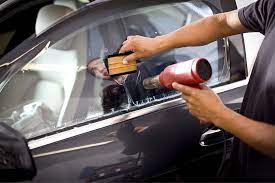Owning a car brings a sense of freedom and convenience, but it also comes with the inevitable need for maintenance and repairs. Understanding the basics of car repair can save you time, money, and the frustration of dealing with unexpected kfz gutachter mönchengladbach. Whether you’re a seasoned driver or a novice, this guide will provide you with essential tips and tricks to keep your vehicle running smoothly.
1. Regular Maintenance: The Key to Longevity
Routine maintenance is the cornerstone of a reliable vehicle. Adhering to the manufacturer’s recommended maintenance schedule can prevent minor issues from becoming major problems. Here are some critical maintenance tasks:
- Oil Changes: Regular oil changes keep your engine lubricated and running efficiently. Typically, oil should be changed every 3,000 to 5,000 miles, depending on your vehicle and driving conditions.
- Tire Care: Maintain proper tire pressure, rotate tires every 6,000 to 8,000 miles, and check for signs of wear and tear. Properly inflated and rotated tires ensure better fuel efficiency and safety.
- Fluid Checks: Regularly check and top off essential fluids, including coolant, brake fluid, power steering fluid, and windshield washer fluid.
- Battery Maintenance: Clean battery terminals and check the charge level periodically. Replace the battery every 3 to 5 years, or as needed.
2. Diagnosing Common Problems
Understanding common car issues can help you diagnose problems early and avoid costly repairs. Here are some frequent issues and their symptoms:
- Strange Noises: Unusual sounds like squealing brakes, grinding gears, or knocking from the engine could indicate underlying issues that need immediate attention.
- Warning Lights: Dashboard warning lights, such as the check engine light, oil pressure light, or brake warning light, signal that something is wrong. Don’t ignore these indicators; they are your car’s way of communicating issues.
- Handling Problems: If your car pulls to one side, vibrates at high speeds, or feels loose when steering, it could be a sign of alignment issues, tire problems, or suspension defects.
3. Essential Tools for DIY Repairs
Having the right tools can make car repairs more manageable and less intimidating. Here are some must-have tools for your home garage:
- Socket Set: A comprehensive socket set with various sizes is essential for most car repair tasks.
- Jack and Jack Stands: These are crucial for safely lifting and securing your vehicle while you work underneath it.
- Wrenches and Pliers: Adjustable wrenches, combination wrenches, and pliers are necessary for loosening and tightening bolts and nuts.
- Screwdrivers: A set of flathead and Phillips screwdrivers is indispensable for a variety of tasks.
- Multimeter: This tool is essential for diagnosing electrical issues by measuring voltage, current, and resistance.
4. When to Seek Professional Help
While many car repairs can be done at home, some tasks require professional expertise and equipment. Knowing when to call a mechanic can save you from making costly mistakes. Here are some scenarios where professional help is advisable:
- Complex Engine Repairs: Issues like timing belt replacement, head gasket repair, or engine rebuilds should be left to professionals due to their complexity and the precision required.
- Transmission Problems: Transmission repairs are intricate and often require specialized tools and knowledge.
- Advanced Diagnostics: Modern vehicles come with sophisticated computer systems. If a problem involves the vehicle’s computer or extensive electrical work, it’s best to seek professional assistance.
5. Preventive Measures and Best Practices
Prevention is always better than cure. Here are some best practices to keep your car in top shape:
- Drive Smoothly: Avoid sudden accelerations and harsh braking, as these can put extra strain on your car’s components.
- Keep It Clean: Regularly wash and wax your car to prevent rust and maintain its appearance. Clean the interior to prevent wear and tear.
- Listen to Your Car: Pay attention to how your car sounds and feels. Early detection of issues can prevent expensive repairs.
Conclusion
Car repair doesn’t have to be daunting. With regular maintenance, the right tools, and a bit of knowledge, you can tackle many common issues on your own. However, recognizing when to seek professional help is crucial to avoid exacerbating problems. By following these tips and tricks, you can ensure your vehicle remains reliable and safe on the road for years to come.
